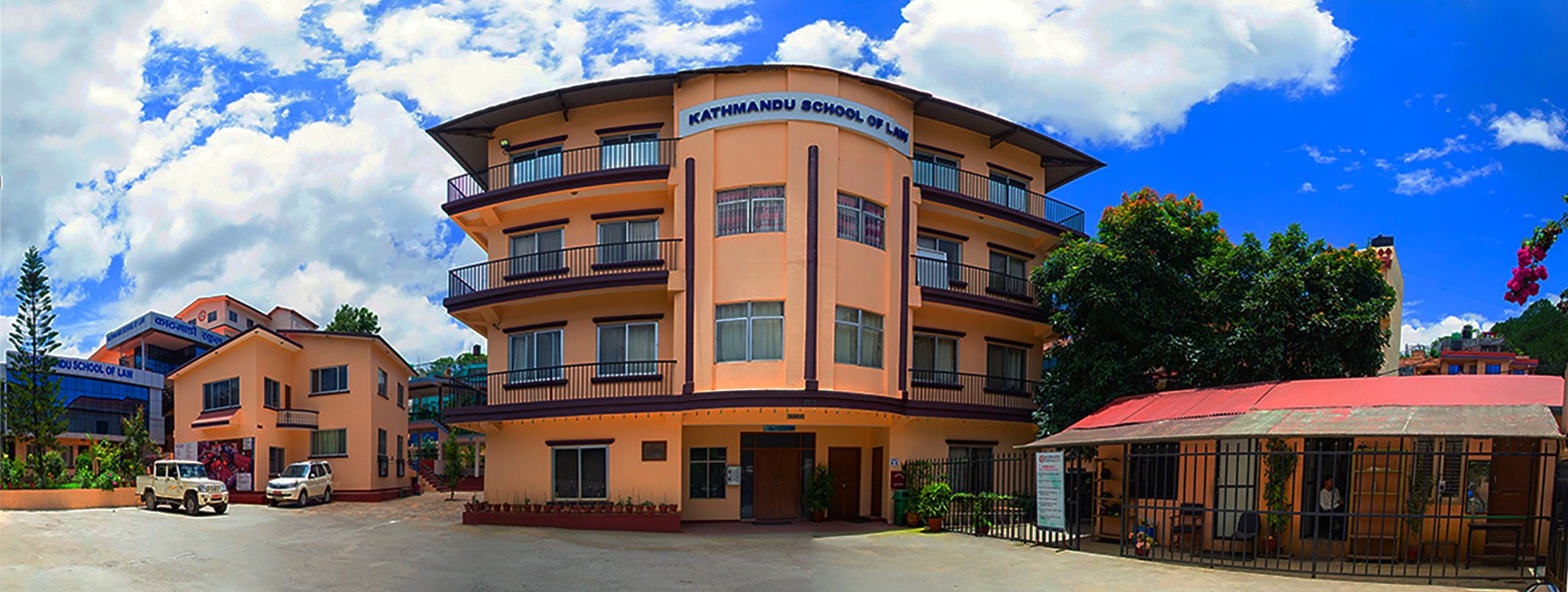Overview
Kathmandu School of Law (KSL), founded in 2000 AD, is a community-based, non-profit institution affiliated with Purbanchal University. For more than two decades, the school has been working to strengthen the foundation of legal education in Nepal.
It was established with a simple but ambitious vision: to prepare professionals who understand the law not only as a subject to be studied but also as a tool for justice, democracy, and social change.
From its earliest days, KSL has placed equal importance on classroom learning, practical training, and community responsibility.
This balanced approach has made the school a place where aspiring lawyers, judges, academics, and policymakers come together to build knowledge that can address Nepal’s changing legal and social needs.
Quick Highlights
-
Established: 2000 AD
-
Affiliation: Purbanchal University
-
Institution Type: Community-based, non-profit
-
Programs: B.A.LL.B, LL.M, M.Phil., PhD in Law
-
Accreditation: Quality Assurance Accreditation (QAA) by UGC Nepal (valid until 2027)
-
Key Focus Areas: Justice, human rights, rule of law, inclusivity, and good governance
-
Special Features: Moot courts, research centers, legal aid programs, and community outreach

Academic Programs
KSL offers programs that cover both the theoretical foundations of law and the skills required in practice.
Undergraduate
-
B.A.LL.B (Five Years): An integrated degree combining law with social sciences. Students learn constitutional law, international law, jurisprudence, human rights, and comparative systems of justice.
Postgraduate
-
LL.M: Focused studies in areas such as human rights law, constitutional law, environmental law, and commercial law.
-
M.Phil. in Law: Research-oriented program for those preparing for academia, advanced research, or policy analysis.
-
PhD in Law: A doctoral program emphasizing independent legal research and contribution to new knowledge.
These programs are designed to create graduates who can work as lawyers, judges, academics, policy advisors, or social advocates.
Admission Process
Admission at KSL is transparent and inclusive.
-
Eligibility: Students must have completed higher secondary education for B.A.LL.B. For postgraduate studies, relevant prior degrees are required.
-
Entrance Exams: All applicants sit for entrance examinations conducted by Purbanchal University, which test analytical thinking, writing, and general knowledge.
-
Scholarship Quotas: Special seats are reserved for women, Dalits, indigenous groups, and students from disadvantaged backgrounds.
This approach ensures that law education remains open to capable students regardless of their financial or social position.
Faculty and Teaching Approach
The faculty at KSL is a mix of professors, practicing lawyers, judges, and visiting lecturers from Nepal and abroad. Many of them bring years of experience in courtrooms, policymaking, and research.
How Students Learn
-
Interdisciplinary Approach: Law is taught alongside subjects like political science, sociology, and economics.
-
Research Orientation: Students engage in projects, case studies, and academic writing from the early years.
-
Clinical Legal Education: Participation in moot courts, internships, and legal aid clinics prepares students for professional life.
-
Active Participation: Classes encourage open discussions, debates, and critical thinking.
This method ensures graduates leave not just with degrees, but with practical skills, research capacity, and confidence in applying legal knowledge.
Infrastructure and Facilities
KSL provides facilities that support both study and personal growth:
-
Library: A large law library with textbooks, journals, legal reports, and access to digital resources.
-
Moot Court Hall: A dedicated courtroom-like space for practice and competitions.
-
Research Centers: Specialized units focusing on human rights, governance, and environmental law.
-
ICT Labs: Digital research and e-learning facilities.
-
Accommodation: Separate and safe hostels for male and female students.
-
Legal Aid Clinics: Platforms where students participate in pro bono work under guidance from faculty.
Campus Life
Life at Kathmandu School of Law extends well beyond lectures and examinations. The campus brings together students from different provinces and backgrounds, creating a vibrant and inclusive environment.
-
Student Diversity: Learners from all over Nepal contribute to a dynamic academic culture.
-
Mentoring and Support: Academic counseling and personal guidance are available throughout the study years.
-
Community Responsibility: Students are encouraged to connect their academic learning with social issues, often through legal aid and outreach work.
Extracurricular Activities
KSL encourages students to explore their potential through extracurricular activities.
-
Moot Court Competitions at national and international levels.
-
Debates and Seminars on current legal and political issues.
-
Workshops with national and international experts.
-
Sports and Cultural Programs that help build leadership and teamwork.
-
Research Presentations for those interested in academic writing and publication.
These activities play an important role in preparing students to engage with real-world issues in professional and civic life.
Scholarships and Support
KSL has created several pathways to ensure that financial constraints do not prevent deserving students from studying law.
-
Merit-Based Scholarships: For students who achieve top positions in university exams and entrance tests.
-
Need-Based Scholarships: At least 10% of students receive aid each year based on economic background.
-
Paid Internships: Each year, more than 10 students receive paid internships in legal firms or organizations.
-
Research Grants: Students can apply for annual grants to support independent research and writing projects.
Through these opportunities, KSL demonstrates its commitment to inclusivity and equal access to education.
Achievements and Milestones
-
Quality Assurance Accreditation (QAA): Awarded in June 2022 by UGC Nepal, valid until June 2027. KSL is the first law college in Nepal to receive this accreditation.
-
Research Output: Faculty and students regularly publish in journals, write books, and contribute to policy discussions.
-
Global Collaborations: Partnerships with universities and research institutes abroad allow students and faculty to exchange knowledge internationally.
-
Alumni Contributions: Graduates are now serving as lawyers, judges, teachers, and policymakers across Nepal and beyond.
Why Choose Kathmandu School of Law?
When choosing a law school, students and families often consider quality, accessibility, and credibility. KSL stands out because it:
-
Combines strong academic teaching with practical training.
-
Reserves scholarships and opportunities for underrepresented groups.
-
Has recognition through Quality Assurance Accreditation.
-
Offers research-driven education connected with Nepal’s legal and social realities.
-
Maintains a record of producing graduates who actively contribute to the legal system and society.
Conclusion
Kathmandu School of Law has, since its establishment in 2000, become an essential part of Nepal’s higher education system. It has created a learning space where academic excellence, fairness, and social commitment meet.
By offering accessible programs, dedicated faculty, strong research culture, and inclusive scholarships, KSL continues to prepare professionals who not only practice law but also contribute to justice and democratic governance.
For students aiming to study law in Nepal, Kathmandu School of Law offers a credible, enriching, and meaningful academic experience.
Contact Kathmandu School of Law's administrative office for detailed information on the course, admissions, location, fees, scholarships, facilities, counseling, or eligibility.














You need to login to comment.